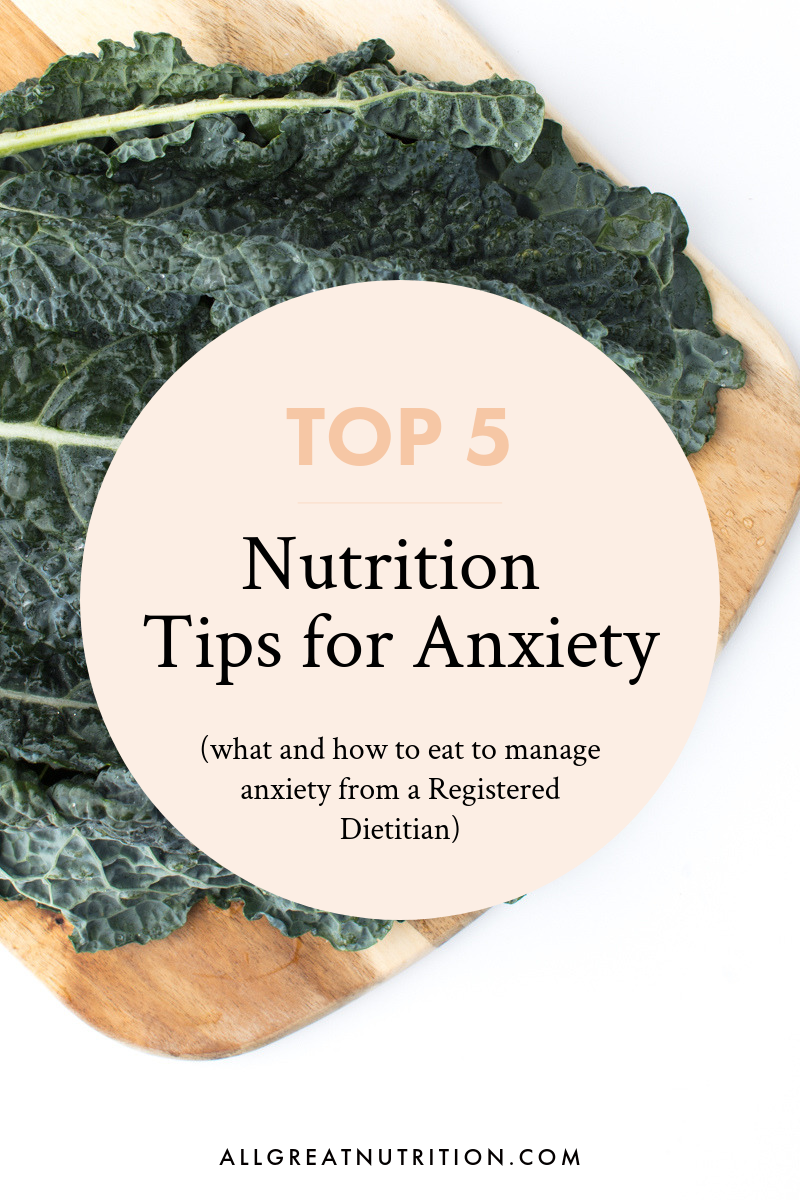5 Amazing ways to reduce anxiety with food
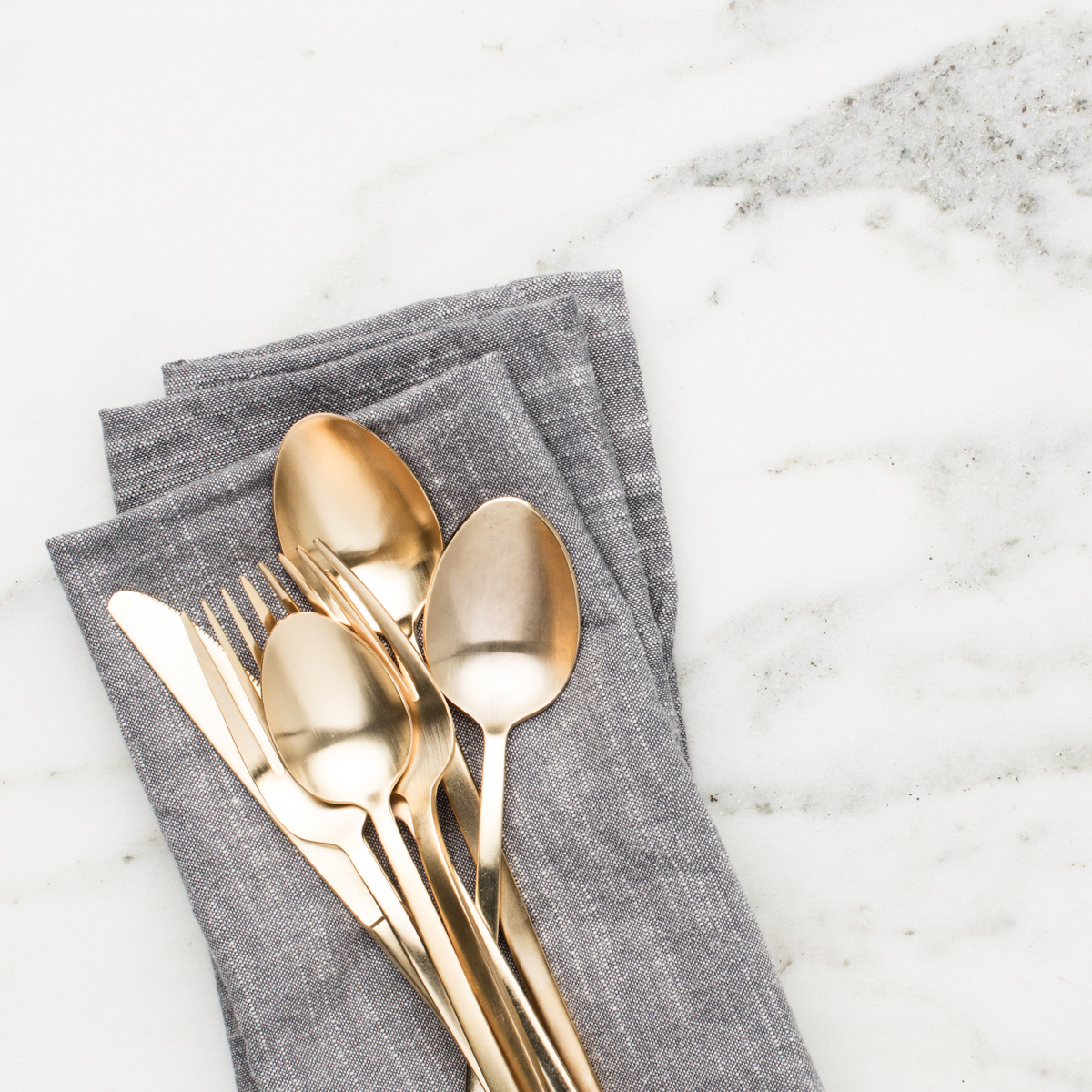
Feeling anxious? Believe it or not, nutrition can help. Keep reading to learn how to reduce anxiety with food.
Anxiety disorders are the leading cause of mental illness in America, affecting about 40 million adults across the country (1).
The American Psychological Association (APA) defines anxiety as “an emotion characterized by feelings of tension, worried thoughts and physical changes like increased blood pressure." Anxiety is a condition that involves mental health, but also physical health.
We all experience anxiety from time to time, and the stress response actually helps us to survive in life threatening situations. But chronic anxiety from non-life threatening situations like running late to work or fear of judgement from others, can have a big impact on quality of life - both physically and mentally.
Why Nutrition is an Important for Managing Anxiety
Most treatment options for anxiety include a combination of therapy and medications, like selective elective serotonin reuptake inhibitors (SSRIs) and benzodiazepines. These medications are helpful for some people, but definitely not for everyone, and come with some pretty serious side effects (2).
Common treatments for anxiety fail to address the environmental triggers for this condition, including certain nutrition and lifestyle factors. Nutrition plays a key role in balancing the body’s stress response, and should therefore be considered as an important part of the treatment plan for managing anxiety.
Want to learn how to reduce anxiety with food? Keep reading for my top nutrition tips for stress relief.
5 Amazing Ways to Reduce Anxiety with Food
01 - BALANCE YOUR BLOOD SUGAR
Having too high or too low blood sugar can wreak havoc on many of your hormones, including cortisol, one of the main hormones in the stress response.
Having too many processed carbohydrates and sweets can throw off your blood sugar by triggering a big surge of glucose (aka sugar) in the blood, followed by an equally drastic drop in blood sugar. This big blood sugar drop triggers the stress response because the body needs a steady amount of glucose in the blood to fuel basic metabolic processes.
Low carbohydrate diets can also trigger the stress response because the body mistakenly thinks it is starving when there isn’t enough glucose in the blood. Many people experience anxiety and even panic attacks from low blood sugar.
If you have anxiety or experience chronic stress, you will be more sensitive to the effects of processed carbohydrates and sweets, and also low carbohydrate diets.
Read this post to learn how to balance your stress hormones with carbs.
02 - OPTIMIZE MEAL TIMING
We all get a little hangry sometimes, but skipping or delaying meals can actually be pretty serious when it comes to anxiety. Not eating for several hours causes your blood sugar to drop. This signals your adrenal glands to ramp up cortisol production.
Cortisol is a powerful hormone that helps regulate blood sugar, metabolism and inflammation. It also impacts brain function and is involved in memory formation. High levels of cortisol contribute to many of the symptoms of anxiety, including irritability and difficulty concentrating.
You can help balance cortisol levels by eating something every 2 - 3 hours to prevent your blood sugar from dropping too low. Aim for 5 - 6 smaller meals spaced throughout the day, or 3 meals and 1 - 2 snacks per day to keep your blood sugar and stress hormones steady.
03 - GET ENOUGH OF THESE NUTRIENTS
What we eat has an influence on all of our body tissues and systems, including our stress response, which involves both the nervous and endocrine systems. You can help combat anxiety by making sure you eat certain nutrients help balance the stress response.
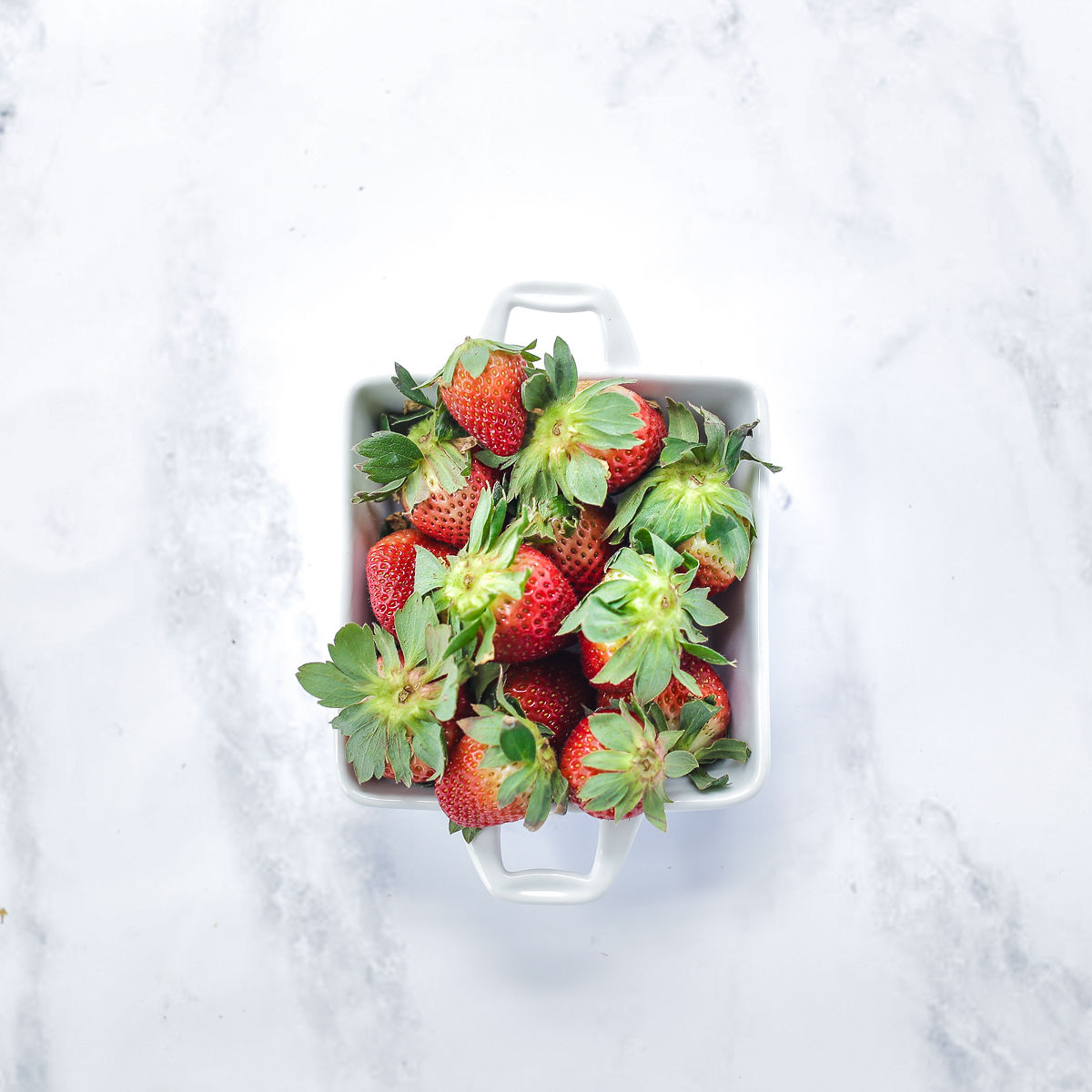
Vitamin C
Vitamin C his highly concentrated in the adrenal glands, and helps your body fight anxiety by aiding in the production of adrenal hormones. It also protects your body from oxidative damage associated with stress, boosts immune function, fights infection, and helps your body detoxify.
You can boost your vitamin c intake by having more of these foods everyday.
-
Papaya
-
Bell peppers
-
Broccoli
-
Brussels sprouts
-
Strawberries
-
Pineapple
-
Oranges
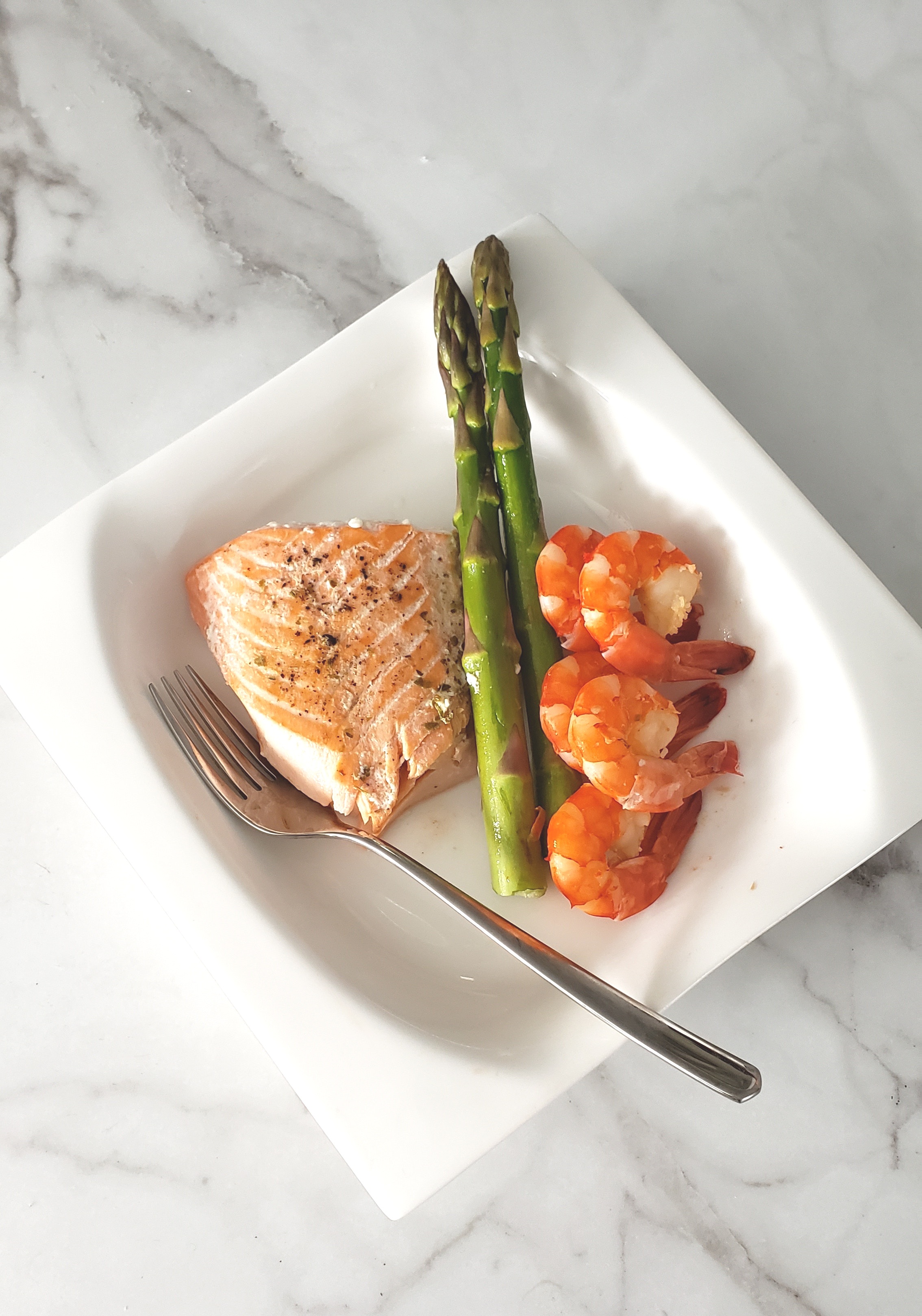
B-Vitamins
Vitamins B6 and B-12 may help prevent and manage anxiety and other mood disorders like depression. B6 has been found to increase the production of serotonin and GABA, neurotransmitters that regulate mood and anxiety (3).
B-12 is critical in nervous system function, and deficiency of this nutrient can even cause nerve damage. Studies have found B-12 and folate supplementation may help balance stress and regulate mood (4, 5). Make sure you have a daily dose of these foods to get enough B-vitamins.
The best food sources of B12 include:
-
Sardines
-
Salmon
-
Tuna
-
Cod
-
Lamb
-
Scallops
-
Shrimp
-
Beef
Foods that are rich in B6 include:
-
Tuna
-
Turkey
-
Beef
-
Chicken
-
Salmon
-
Sweet potato
-
Potato
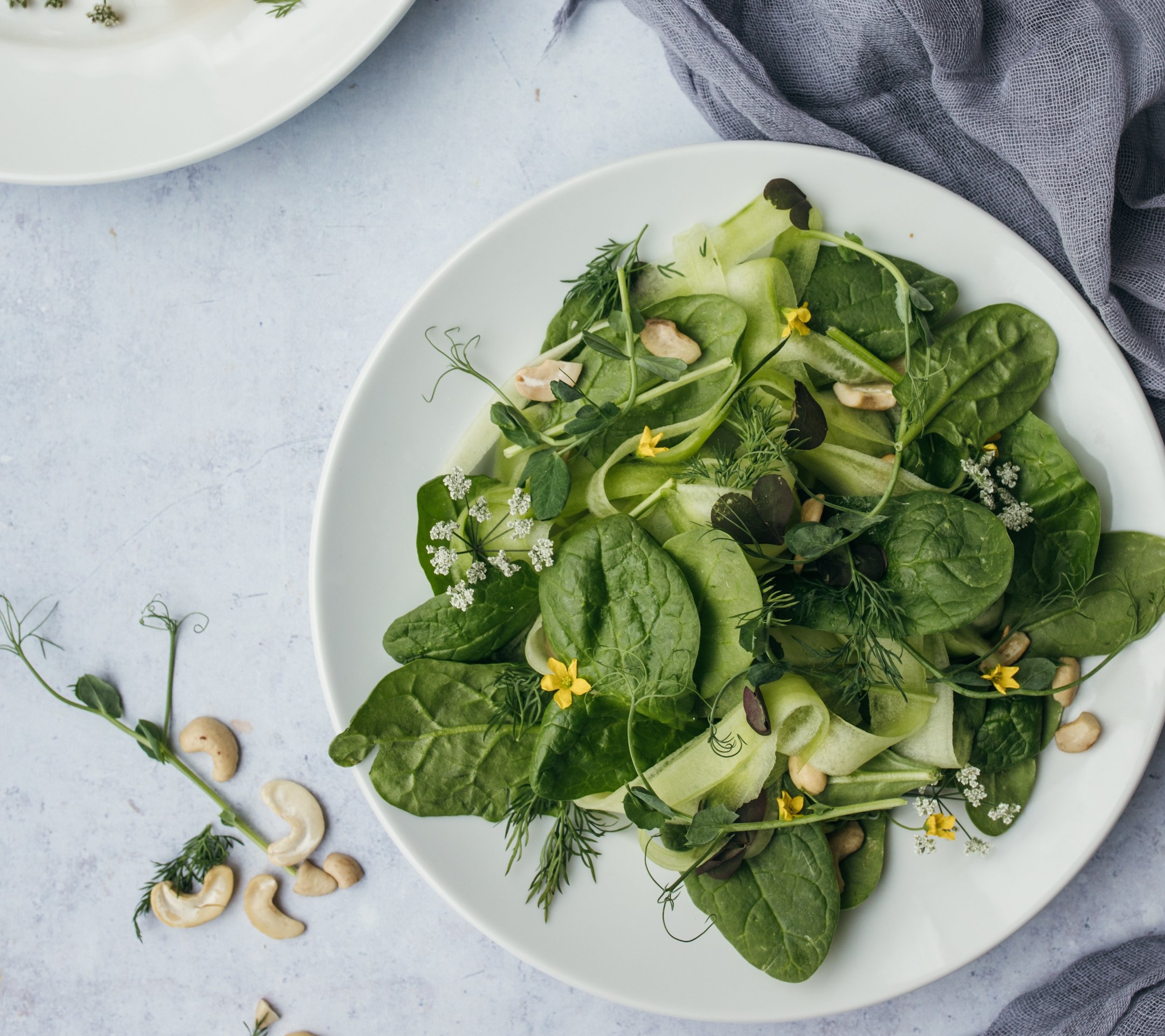
Magnesium
Magnesium is a vital mineral that has many important functions in the body. Studies have found that anxiety and depression are symptoms of magnesium deficiency (6). Magnesium also helps to relax your muscles and supports GABA function and calm the nervous system (7).
Eat lots of these foods to boost your magnesium intake:
-
Pumpkin seeds
-
Spinach
-
Swiss chard
-
Soybeans
-
Sesame seeds
-
Black beans
04 - BALANCE YOUR GUT
There is a growing body of research that suggests an imbalance in the gut microbiome can contribute to a number of brain disorders, including anxiety (8, 9, 10). The brain and the gut are connected through a network of nerves known as the gut-brain-axis, through which changes in either system influence the other.
For example, anxiety often causes gut dysfunction, and people with gut imbalances like IBS are also more likely to have mood and cognitive disorders like anxiety.
Some neurotransmitters like GABA, serotonin, and dopamine are also synthesized in the gut. In fact, the vast majority (about 90%) of serotonin is synthesized in the gut, not than the brain (11)!
The gut microbiome also plays a key role in the development and function of the stress response (12).
If you have anxiety, try eating fermented foods like yogurt, kefir, kim chi, and sauerkraut on a daily basis to help balance your gut and stress response.
05 - BE MINDFUL OF CAFFEINE
The stimulant effects of caffeine can increase symptoms of anxiety, by causing moodiness, nervousness, and the jitters (13). In fact, research has found that people with social anxiety and panic disorder are especially sensitive to the effects of caffeine.
Not everyone needs to completely eliminate caffeine to manage anxiety, but decreasing your intake of caffeine is one of the best things you can do to balance your stress response and help with sleep! If you have anxiety, I recommend switching to green tea, and avoiding caffeine from any source after your morning cup.
Now you know that anxiety is a mind-body condition that can be managed with a combination of treatments that include nutrition and diet changes. Hopefully some of the these natural nutrition remedies can help reduce your anxiety.
Tell me some of your favorite nutrition tips for reducing anxiety. Have you tried any of the tips in this article? Let me know if the comment section below.
AFFILIATE DISCLOSURE
This post may contain affiliate links, which means that All Great Nutrition may receive a percentage of a product or service you purchase using the links in the post. You will pay the same price for all products and services, but your purchase helps support our ongoing work to help others be healthy and happy. Thanks for your support!
Love this post? Pin in for later!

Hey! I’m Tamar…
